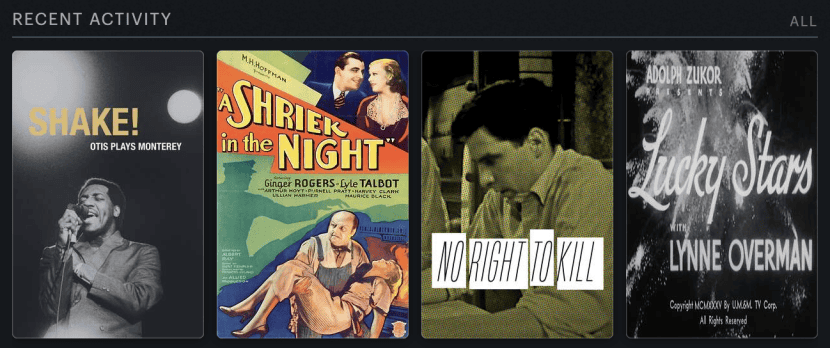Over on BlueSky there’s a running thing of LetterboxdFriday, where people share screenshots every Friday of the last four movies listed on their Letterboxd profile. I love it — and I thought, “Hey, why not expand a little bit on my LetterboxdFriday by putting some notes on the blog?” So here we go!
Shake! Otis Plays Monterey
A short film shows Otis Redding’s complete set from the Monterey International Pop Festival of 1967. Director D.A. Pennebaker — best known for feature-length music documentaries like Moon Over Broadway and Original Cast Album: Company (itself the inspiration behind one of the best episodes of “Documentary Now!“) — keeps the camera trained on an electric performance. There’s a little bit of unintentional comic as Redding introduces “Respect,” then proceeds to forget the lyrics and repeat the second verse over and over again with increasing pauses before launching into the lyrics as though wondering why the band hasn’t caught on and ended the song. Even if he can’t get all of the lyrics into the microphone, it’s still a phenomenal, crackling performance captured on film.
Viewed on The Criterion Channel.
A Shriek in the Night
A pre-code thriller that’s very low on thrills, so maybe a mystery? Except it’s not very mysterious, either. The movie leans heavily on Ginger Rogers’ charisma, which is ample enough to carry the whole thing. Of course, as a pre-code flick, you can count on some moments that haven’t aged all that well.
No Right to Kill
Originally aired as an episode of “Climax!” — the four-season anthology series. A few minutes in, I started to think, “This is an awful lot like Fear (1946), which was expertly dissected by Bridget and Mary Jo over at RiffTrax. There’s good reason for that — both are modernized, American rewrites of Dostoyevsky’s Crime and Punishment. Of the two, No Right to Kill’s production looks less polished thanks to its television roots, but plays a lot more powerfully in part thanks to the lead performance from John Cassavetes.
Lucky Stars
This 1935 short is a look back at how the movie industry sold a dream of how it actually worked. We follow two talented women — one already an accomplished opera singer, and the other discovered among the hordes of extras who populate backgrounds in the movies — as they are tested on-camera to see if they’ll play on the big screen. The movie is played like a documentary, but it’s more of a sales pitch. Betty Jane Rhodes, the supposed extra, was actually a ghost singer who recorded vocals for musicals when the lead actress’ voice lacked a little oomph, and this short released a year before RKO released Forgotten Faces with Rhodes in the lead. Her appearance in “Lucky Stars” was probably intended to give audiences a reason to root for the new star, whom they had watched “get her start.”
